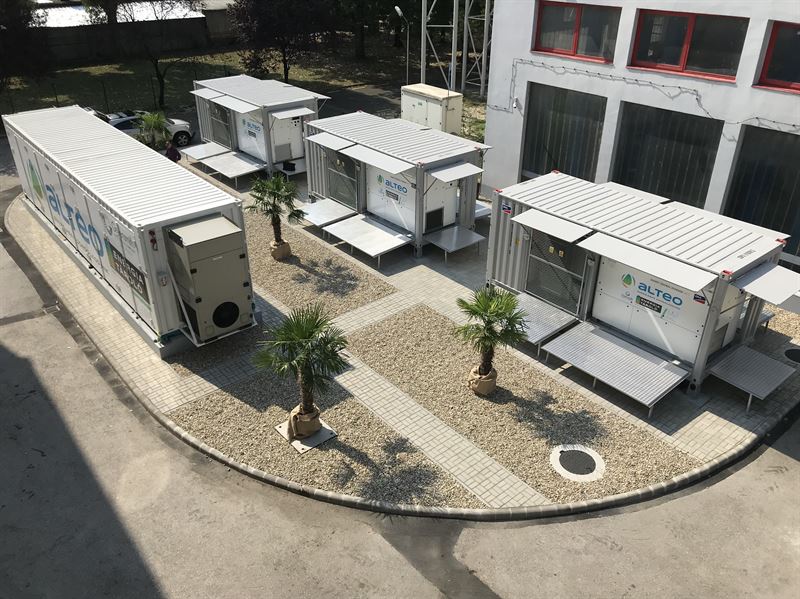The Hungarian Ministry of Energy has announced that around 50 grid-scale energy storage projects with a cumulative capacity of 440 MW have received subsidy support through a tender launched in February this year.
The procurement exercise is part of a broader subsidy program to the tune of HUF 200 billion launched in a bid to support households and businesses to produce and store green energy.
Last Thursday, the government said that it has selected the winning bidders and allocated HUF 62 billion for their energy storage projects.
The selected companies and organizations must complete the installation of projects by the end of April 2026.
“With the successful implementation of the program, domestic energy storage capacity can increase by about 20 times within two years,” the ministry said in the announcement.
The subsidies are secured via the National Recovery and Resilience Plan and the state budget. They consist of non-refundable investment support and income compensation for the construction of energy storage facilities and their operation for at least ten years.
The operational support will be provided through two-way contracts for difference. The winners were selected on the basis of the lowest cost principle and the lowest income compensation claim, the ministry said.
With funds obtained through a previous program, transmission system operator MAVIR is already building the country's largest energy storage system – a 20 MW project in Szolnok, central Hungary, the ministry said. It added that several projects with even bigger capacity will be installed under the tender concluded a few days ago.
Hungary's renewable energy fleet is heavily dominated by solar, accounting for more than 85%, and followed by wind, which accounts for less than 6% of the total installed capacity.
The country had a record year for new solar in 2023, adding 1.6 GW. Preliminary figures from MAVIR showed the total solar capacity equated to 3.3 GW of industrial solar power plants and 2.3 GW of household-sized installations.
In 2024, the Hungarian government continues to support the growth of residential PV through its newly launched Napenergia Plusz Program, a grant scheme for the installation of modern solar panel and storage systems with a total budget of HUF 75.8 billion. The scheme is expected to support over 15,000 households.
Hungary has set a target of 12 GW of solar capacity by the start of the next decade. However, grid capacity shortfalls have been dire, hampering primarily the rollout of large-scale solar.
The country’s revised National Energy and Climate Plan envisages the construction of a total of 1 GW of storage capacity by 2030. The Ministry of Energy encourages the expansion of the energy storage market with legislative and financial instruments, namely various fee and tax discounts.
The battery storage rollout is expected to be complemented by some pumped hydro capacity. The geological research drilling for a feasibility study of the first such project in the country is already underway.
This content is protected by copyright and may not be reused. If you want to cooperate with us and would like to reuse some of our content, please contact: editors@pv-magazine.com.




By submitting this form you agree to pv magazine using your data for the purposes of publishing your comment.
Your personal data will only be disclosed or otherwise transmitted to third parties for the purposes of spam filtering or if this is necessary for technical maintenance of the website. Any other transfer to third parties will not take place unless this is justified on the basis of applicable data protection regulations or if pv magazine is legally obliged to do so.
You may revoke this consent at any time with effect for the future, in which case your personal data will be deleted immediately. Otherwise, your data will be deleted if pv magazine has processed your request or the purpose of data storage is fulfilled.
Further information on data privacy can be found in our Data Protection Policy.